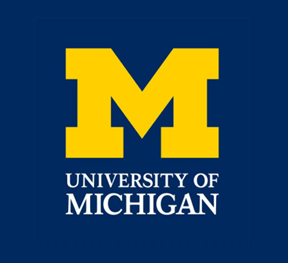Job Details
This ad is expired.

- Director of the Institute for Global Change Biology
- Go to our website »

Director of the Institute for Global Change Biology
Job Opening ID: 174529
Work Location: Ann Arbor Campus
Ann Arbor, MI
Full Time/Part Time: Full-Time
Regular/Temporary: Regular
FLSA Status: Exempt
Organizational Group: School Nat Res Envir
Department: Sch for Environ and Sustain
Posting Begin/End Date: 10/01/2019 4/13/2020
Salary:
Paid Time Off: Yes
Career Interest:
How to Apply
To apply, submit application materials in Interfolio, via the following link:
http://apply.interfolio.com/64616
Applications should include (1) a letter of interest; (2) a vision statement for IGCB and your research program; (3) CV; (4) a one-page statement on how the candidate contributes to diversity efforts, and (5) a list of three names of academic references with contact information.
Interviews are anticipated to begin early October 2019. For assistance or further information, you may contact SEAS.faculty.search.staff@umich.edu
Job Summary
The University of Michigan invites nominations and applications for the Director of the new Institute for Global Change Biology (IGCB). This is an exceptional opportunity to lead global change research across the University of Michigan campus. The IGCB was created as part of the University President's Biosciences Initiative, funded at $150 million to develop new institutes and programs across the University of Michigan campus. New faculty hires are designed to strengthen research and education through strategic leadership, coordination and the development of new and exciting research opportunities. We anticipate an additional 4 joint-appointment faculty hires within the IGCB in 2020 and 2021.The IGCB seeks to understand the biosphere's responses to a variety of human activities, including climate change and shifting ecological regions, land-use conversion, release of pollutants and species introductions. These processes and their impacts are complex, interactive, and difficult to address. Research must develop new methods towards generating forecasts that combine changes, impacts and responses to assist science-based decision making relevant to society. The IGCB will foster research to understand and forecast the interactive effects of global change on ecosystems. The IGCB's mission is to: 1) Understand the complex interactions of global change biology; 2) Develop decision-making frameworks for mitigating and adapting to global change; 3) Identify forecast indicators; 4) Develop robust forecast models; and 5) Focus on issues that inform decision-makers on solutions to existing and emerging global change issues.
The University of Michigan's expansive breadth and depth of expertise uniquely position the University to be at the forefront of an innovative, collaborative and integrative set of programs that will magnify the impacts of faculty, staff and student work in the environment and sustainability.
We seek a Professor with an internationally recognized global change research program to be Director of the IGCB. This position will be based in the newly established School for Environment and Sustainability (SEAS). SEAS has porous boundaries, as will the IGCB, to provide leadership and work collaboratively with other schools, institutes and programs at UM to develop solutions to the most challenging global sustainability issues. Joint appointments in other U-M Schools and Colleges are possible.
The IGCB will bring together faculty from a wide variety of disciplines to pursue collaborative, interdisciplinary approaches to issues that impact our environment, sustainable development, and societal linkages. The Director will provide leadership in facilitating cross-campus, collaborative research to address the needs identified above, and they will report to the Dean of SEAS and the U-M Vice-President for Biosciences.
Required Qualifications*
- A distinguished research and teaching record commensurate with an appointment as a tenured full professor in SEAS. Associate Professors may apply if their record is appropriate for promotion.
- Demonstrated ability to work collegially and cooperatively by reaching across school/college/unit boundaries to form positive, productive relationships.
- The ability to lead and manage via influence and collaboration.
- The ability to consider issues and perspectives of multiple stakeholders and a wide range of disciplines.
- Commitment to diversity, equity and inclusion consistent with the university's commitment (https://diversity.umich.edu/about/)
- Demonstrated leadership in research programs, as well as community and stakeholder engagement
Additional Information
SEAS is committed to creating and maintaining an inclusive and equitable environment that respects diverse experiences, promotes generous listening and communications, and discourages and restoratively respond to acts of discrimination, harassment, or injustice. Our commitment to diversity, equity and inclusion is deeply rooted in our values for a sustainable and just society.The University of MichiganThe University of Michigan has a long and distinguished history. It was founded in 1817, 20 years before the territory became a state and 45 years before the Morrill Act of 1862 established the modern, public land-grant university system. It was one of the first public universities in the nation, and throughout its more than 200-year history, it has maintained the highest levels of education, scholarship, and research.
Among national universities, U.S. News and World Report regularly ranks the University of Michigan in the top dozen schools by reputation for undergraduate teaching. The Center for World Class Universities at Shanghai Jiao Tong University (the Shanghai Index) ranked the University 23rd among the top 500 in 2016. The QS world rankings place U-M as the top U.S. public university.
The University of Michigan has a total budget of $7.4 billion and an endowment of $11.9 billion (June 2018). The Ann Arbor campus has 6,033 faculty full-time equivalents (FTEs). Instructional appointments comprise 3,390 FTEs, and another 2,644 FTEs are individuals with clinical, research and other titles who are primarily involved in health care, research and related scholarly activities. The University enrolls approximately 46,000 undergraduate and graduate students. It has ranked first in the country among public universities in total research expenditures for the last 8 years, with a research portfolio of over $1.5 billion in FY2018.
Over the years, the University has carefully planned for reductions in state and federal resources to sustain its impressive trajectory. In the 1990s, in a prescient and enormously successful strategic change, the University adopted a Responsibility Centered Management (RCM) approach to budgeting, which delegates revenue and cost authority to the deans of its individual schools and colleges, giving units incentives to manage their budgets in ways that best meet their needs and benefit the overall financial outlook of the University. Today, the University is stronger than ever, with reduced overhead, more faculty, lower costs, and greater distinction.
The University of Michigan has been a leader among public universities in developing a strong alumni support network, and it has achieved tremendous success in philanthropy to enhance its mission. In 2012, the University launched the Victors for Michigan capital campaign, aiming to raise $4 billion. The campaign, which concluded in October 2018, raised $5 billion in total.
The City of Ann ArborAnn Arbor, located 40 miles west of Detroit and 250 miles east of Chicago, is an attractive area in which to live and work. It is home to a world-class educational and high-tech research center nestled in a close-knit community of neighborhoods with a rich mix of cultures. It has a vibrant arts community and festivals throughout the year that draw hundreds of thousands of visitors annually. Ann Arbor routinely is ranked as having some of the best quality of life in the nation. Its total population, including the student population of the University of Michigan, is 114,000, and the University employs more than 27,000 residents of Washtenaw County.
U-M EEO/AA Statement
The University of Michigan is an equal opportunity/affirmative action employer.
To apply, visit https://careers.umich.edu/job_detail/174529/director_of_the_institute_for_global_change_biology
Copyright 2017 Jobelephant.com Inc. All rights reserved.
Posted by the FREE value-added recruitment advertising agency
jeid-3a411a74f984064fae97480ed627f1bb

